Filter by
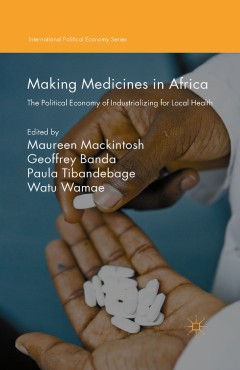
Making medicines in Africa : the political economy of industrializing for loc…
The importance of the pharmaceutical industry in Sub-Saharan Africa, its claim to policy priority, is rooted in the vast unmet health needs of the sub-continent. Making Medicines in Africa is a collective endeavour, by a group of contributors with a strong African and more broadly Southern presence, to find ways to link technological development, investment and industrial growth in pharmaceutic…
- Edition
- -
- ISBN/ISSN
- 9781137546470
- Collation
- xxi, 334p. : ill.
- Series Title
- -
- Call Number
- 338.476151096 MAK m

Selling the Economic Miracle
Through an examination of election campaign propaganda and various public relations campaigns, reflecting new electioneering techniques borrowed from the United States, this work explores how conservative political and economic groups sought to construct and sell a political meaning of the Social Market Economy and the Economic Miracle in West Germany during the 1950s.The political meaning of e…
- Edition
- -
- ISBN/ISSN
- 9781789206401
- Collation
- -
- Series Title
- -
- Call Number
- 330.9430875 SPI s

Non-equilibrium social science and policy : introduction and essays on new an…
The overall aim of this book, an outcome of the European FP7 FET Open NESS project, is to contribute to the ongoing effort to put the quantitative social sciences on a proper footing for the 21st century. A key focus is economics, and its implications on policy making, where the still dominant traditional approach increasingly struggles to capture the economic realities we observe in the world …
- Edition
- -
- ISBN/ISSN
- 9783319424248
- Collation
- viii. 232p. : ill.
- Series Title
- -
- Call Number
- 330.01 NON n
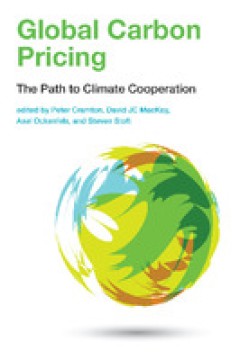
Global carbon pricing: the path to climate cooperation
Why the traditional “pledge and review” climate agreements have failed, and how carbon pricing, based on trust and reciprocity, could succeed.After twenty-five years of failure, climate negotiations continue to use a “pledge and review” approach: countries pledge (almost anything), subject to (unenforced) review. This approach ignores everything we know about human cooperation. In this …
- Edition
- -
- ISBN/ISSN
- 9780262036269
- Collation
- xvii, 252p.: ill.
- Series Title
- -
- Call Number
- 363.738746 GLO g
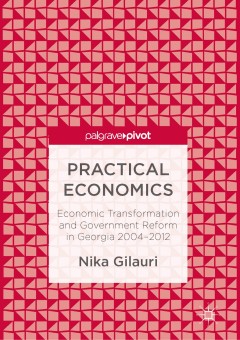
Practical economics : economic transformation and government reform in Georgi…
In this book, Nika Gilauri reveals his formulas for government reform and economic recovery, including how to fight against corruption, reform fiscal policy and tax systems, privatize state-owned enterprises, build a welfare system for those most in need, create a competitive education and healthcare system, and streamline procurement. All formulas are corroborated by practical experience and e…
- Edition
- -
- ISBN/ISSN
- 9783319457697
- Collation
- xv, 213p. : ill.
- Series Title
- -
- Call Number
- 330.94758 GIL p

Emerging market economies and financial globalization: argentina, brazil, chi…
In the past, foreign shocks arrived to national economies mainly through trade channels, and transmissions of such shocks took time to come into effect. However, after capital globalization, shocks spread to markets almost immediately. Despite the increasing macroeconomic dangers that the situation generated at emerging markets in the South, nobody at the North was ready to acknowledge the pro-…
- Edition
- -
- ISBN/ISSN
- 9781783086740
- Collation
- pages cm.
- Series Title
- Anthem frontiers of global political economy
- Call Number
- 330 STA e
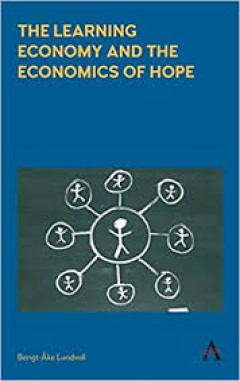
The Learning Economy and the Economics of Hope
The Learning Economy and the Economics of Hope’ offers original insights in processes of innovation and learning and draws implications for economic theory and public policy. The book introduces the reader to important concepts such as innovation systems and the learning economy. It throws new light on economic development and opens up horizons for a new kind of economics – the economics of…
- Edition
- -
- ISBN/ISSN
- 9781783085965
- Collation
- -
- Series Title
- -
- Call Number
- 330 LUN t

Pharmacovigilance in the European Union : practical implementation across mem…
The book presents the results of an in-depth comparative study assessing the implementation of the EU Pharmacovigilance Directive in six EU Member States. By going beyond legal transposition and instead focusing on practical implementation, this study aims to close a gap in EU compliance research. Based on qualitative interviews with relevant actors in Germany, Poland, Portugal, France, Finland…
- Edition
- -
- ISBN/ISSN
- 9783658172763
- Collation
- xiv, 124p. : ill.
- Series Title
- -
- Call Number
- 615.7042 KAE p
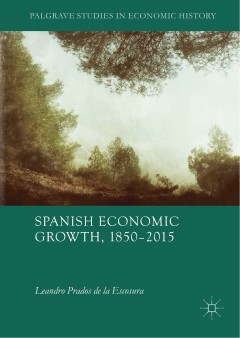
Spanish economic growth, 1850-2015
This text offers a comprehensive and nuanced view of the economic development of Spain since 1850. It provides a new set of historical GDP estimates for Spain from the demand and supply sides, and presents a reconstruction of production and expenditure series for the century prior to the introduction of modern national accounts. The author splices available national accounts sets over the perio…
- Edition
- -
- ISBN/ISSN
- 9783319580425
- Collation
- xxiv, 383p. : ill.
- Series Title
- -
- Call Number
- 330.9 DE s
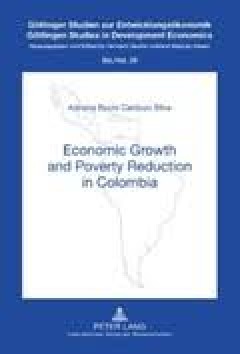
Economic growth and poverty reduction in Colombia
This book analyses the distributional effects of economic growth on different dimensions of poverty in Colombia. It provides a microeconomic perspective on how economic growth affected poverty and inequality at the household level, as well as a macroeconomic perspective on the effects of growth on regional living standards. The study incorporates recent discussions on multidimensional analysis …
- Edition
- -
- ISBN/ISSN
- 9783653002744
- Collation
- xxiv, 194 p. : ill., 1 col. map ; 22 cm.
- Series Title
- Göttinger Studien zur Entwicklungsökonomik ; Bd. 29
- Call Number
- 330 CAR e
 Computer Science, Information & General Works
Computer Science, Information & General Works  Philosophy & Psychology
Philosophy & Psychology  Religion
Religion  Social Sciences
Social Sciences  Language
Language  Pure Science
Pure Science  Applied Sciences
Applied Sciences  Art & Recreation
Art & Recreation  Literature
Literature  History & Geography
History & Geography